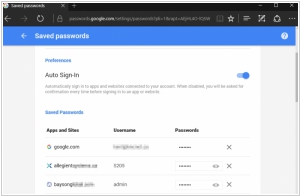Bitwarden vs Google Password Manager
August 06, 2023 | Author: Michael Stromann
22
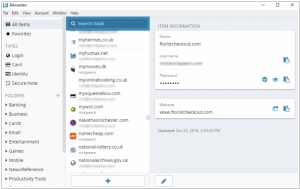
Bitwarden is a free and open-source password management service that stores sensitive information such as website credentials in an encrypted vault. The Bitwarden platform offers a variety of client applications including a web interface, desktop applications, browser extensions, mobile apps, and a CLI.
Bitwarden and Google Password Manager are both password management tools, but they differ in terms of features, platform compatibility, and data storage options. Bitwarden is an open-source password manager that offers features such as secure password storage, autofill functionality, and cross-platform support. It allows users to store and sync passwords across multiple devices, and it provides options for generating strong, unique passwords. Bitwarden also offers additional features like secure note storage and two-factor authentication. It prioritizes privacy and security, with the option for self-hosting data on personal servers.
Google Password Manager, on the other hand, is integrated into the Google ecosystem and offers password saving and autofill functionality primarily within Google Chrome and Google accounts. It conveniently syncs passwords across devices for users who are heavily invested in the Google ecosystem. Google Password Manager provides a user-friendly interface and seamless integration with Google services, but it may have limited compatibility with non-Google platforms and browsers.
See also: Top 10 Password Managers
Google Password Manager, on the other hand, is integrated into the Google ecosystem and offers password saving and autofill functionality primarily within Google Chrome and Google accounts. It conveniently syncs passwords across devices for users who are heavily invested in the Google ecosystem. Google Password Manager provides a user-friendly interface and seamless integration with Google services, but it may have limited compatibility with non-Google platforms and browsers.
See also: Top 10 Password Managers
Bitwarden vs Google Password Manager in our news:
2023. Google Password Manager adds biometric locks on desktop
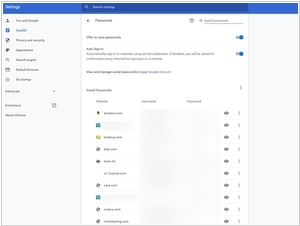
Google Password Manager has recently introduced several convenient updates. These additions aim to enhance your browsing experience by ensuring seamless access to your various websites. Notable features include a new "Password Manager" menu in Chrome for easy accessibility, the option to create a desktop shortcut for Password Manager, and the ability to utilize biometric locks (such as fingerprints or face scans) on compatible desktop devices. Furthermore, you now have the option to add notes to individual passwords, allowing you to include additional information like PINs associated with certain site logins. If you prefer using alternative password management apps like Lastpass or 1Password, you also have the option to import your stored passwords as a .csv file into Google Password Manager.
2022. Open source password manager Bitwarden raises $100M
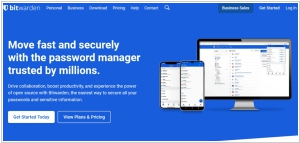
Open-source password manager Bitwarden has successfully secured a $100 million funding round. Bitwarden operates in a competitive market that includes established players like 1Password, which recently achieved a valuation of $6.8 billion following a $620 million funding round, and LastPass, which recently returned to independence after being acquired by private equity firms two years ago. In essence, Bitwarden and similar solutions simplify the process of generating strong, difficult-to-guess passwords automatically. These password managers enable users to securely store their passwords in a digital vault, helping them avoid the common practice of reusing predictable passwords across multiple online accounts.
2022. Google consolidates its Chrome and Android password managers
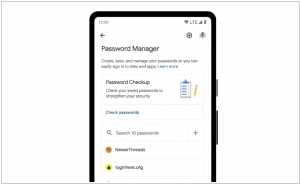
Google has recently revealed an update to its password manager, bringing a consistent look and feel to both its Chrome and Android versions. Users can expect a unified user experience that automatically organizes multiple passwords for the same sites or apps. Additionally, Android users will benefit from a convenient shortcut on their home screen to access these passwords. Google's password check feature on Android has also been enhanced to identify weak and reused passwords, offering assistance in automatically updating them. Furthermore, Chrome users on all platforms will now receive warnings for compromised passwords.

